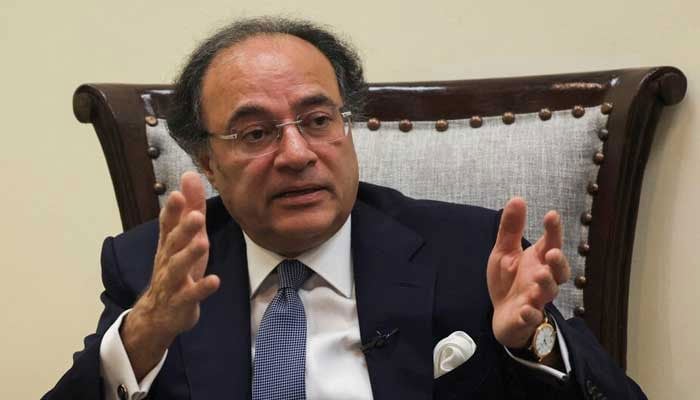‘Govt eyeing joint ventures, secondary listings for firms in Hong Kong’

ISLAMABAD: Finance Minister Muhammad Aurangzeb has said that the country was eyeing more joint ventures with Hong Kong and secondary listings for its firms in the metropolis.
Speaking to the South China Morning Post, the finance minister said that he would take up the possibility of a Hong Kong delegation’s visit to Pakistan to identify areas for closer collaboration.
“If there is an opportunity for companies out of Pakistan, as joint ventures with local companies, to come in and do primary and secondary listings in the Hong Kong stock exchange, for instance, I think it can be a real win-win, not only in terms of the investment that we expect back in Pakistan, but also outwards investment,” said Aurangzeb.
The minister’s remarks came against the backdrop of his Hong Kong visit for the two-day Asian Financial Forum, which began on Monday.
‘Panda Bonds before June’
To explore further financing opportunities, he told the Post that Pakistan will issue Yuan-denominated Panda Bonds as early as June to further integrate its capital markets with that of China.
Aurangzeb said Pakistan aimed to raise $200 million to $250 million from Chinese investors in the first phase.
“Since I took over [in March 2024], I have been very vocal about this — that we want to go for Panda Bonds, an inaugural sovereign Panda Bond [….] I’m pushing everyone, including our own teams, to see if we can get this done before June,” he said.
The minister added that Pakistan had followed Egypt’s lead to issue the yuan bonds on the back of credit improvement from the Beijing-led Asian Infrastructure Investment Bank (AIIB).
He said Pakistan had endured years-long inflation and was pushed to the brink of default in 2023 as its economy withered amid political chaos and economic mismanagement.
But the country’s economy rebounded last year as the inflation rate dropped from nearly 38% in May 2023 to 4.1% last month.
The International Monetary Fund (IMF) and Pakistan also reached an agreement on a 37-month extended bailout loan of about $7 billion, with some of the country’s main debt holders, including China, agreeing to a one-year debt rollover last year.
CPEC’s future
The minister also assured more cooperation with Beijing on the next phase of the China-Pakistan Economic Corridor (CPEC) — a key initiative for boosting bilateral trade and investment.
Amid what he called the “balance of payment problem”, Aurangzeb said that enhancing CPEC cooperation would be crucial, adding that the newest version of a flagship Belt and Road Initiative project would help the country digest its debt through an export-led model.
The second phase of the project, according to Pakistan, aims to set up special economic zones in partnership with China to reform the country’s agricultural and information technology sectors while attracting Chinese companies to relocate their low-end industries to the country.
Aurangzeb said Pakistan was in trouble because the economy had been “primarily import-led”, which caused the country to “run out of foreign currency and get into a balance of payment problem”.
“Which means we have to fundamentally change the DNA of the economy towards export-led growth,” he added.
“We want to make it work for some companies from the mainland to come in and use it as a real export hub.” He also assured to step up security in his country to protect Chinese companies.
Source link




